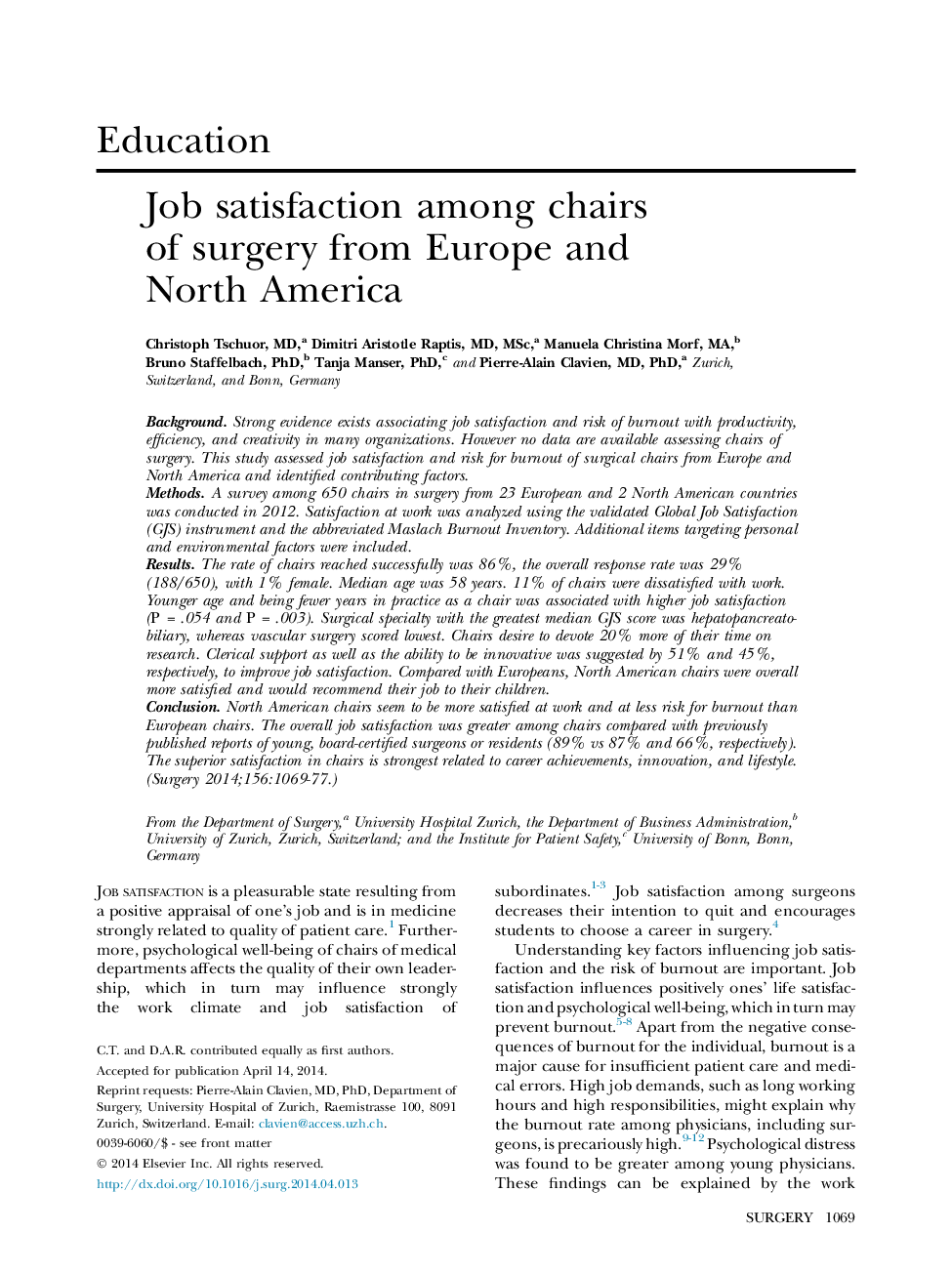| Article ID | Journal | Published Year | Pages | File Type |
|---|---|---|---|---|
| 4307492 | Surgery | 2014 | 9 Pages |
BackgroundStrong evidence exists associating job satisfaction and risk of burnout with productivity, efficiency, and creativity in many organizations. However no data are available assessing chairs of surgery. This study assessed job satisfaction and risk for burnout of surgical chairs from Europe and North America and identified contributing factors.MethodsA survey among 650 chairs in surgery from 23 European and 2 North American countries was conducted in 2012. Satisfaction at work was analyzed using the validated Global Job Satisfaction (GJS) instrument and the abbreviated Maslach Burnout Inventory. Additional items targeting personal and environmental factors were included.ResultsThe rate of chairs reached successfully was 86%, the overall response rate was 29% (188/650), with 1% female. Median age was 58 years. 11% of chairs were dissatisfied with work. Younger age and being fewer years in practice as a chair was associated with higher job satisfaction (P = .054 and P = .003). Surgical specialty with the greatest median GJS score was hepatopancreatobiliary, whereas vascular surgery scored lowest. Chairs desire to devote 20% more of their time on research. Clerical support as well as the ability to be innovative was suggested by 51% and 45%, respectively, to improve job satisfaction. Compared with Europeans, North American chairs were overall more satisfied and would recommend their job to their children.ConclusionNorth American chairs seem to be more satisfied at work and at less risk for burnout than European chairs. The overall job satisfaction was greater among chairs compared with previously published reports of young, board-certified surgeons or residents (89% vs 87% and 66%, respectively). The superior satisfaction in chairs is strongest related to career achievements, innovation, and lifestyle.
